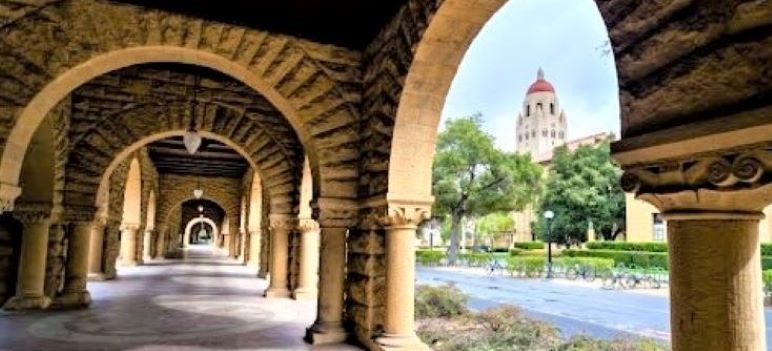The California Department of Education is defending its right to pursue a breach of a data partnership agreement against a Stanford University education professor for participating in a lawsuit against the agreement.
The state’s rationale failed to persuade numerous critics and attorneys who are challenging the agency's action in court. The critics say the department's defense ignored the harm to the public by restricting independent researchers' use of state data.
“It seems pretty clear that a state agency here is trying to hold public data hostage to coercive demands on researchers' free speech rights,” said John Affeldt, managing attorney for Public Advocates, a public interest law firm. Public Advocates has filed successful lawsuits against the state education department over several decades including the landmark Williams case, which guarantees that low-income schools are equipped with adequate facilities, sufficient textbooks and well-trained teachers.
State education officials have threatened to fine Thomas Dee, a prominent education researcher, up to $50,000 and to seek other sanctions against him and potentially the John Gardner Center for Youth and Their Communities at Stanford, where Dee is a faculty adviser. The conflict was the subject of legal wrangling last week in Alameda County Superior Court.
The department is alleging Dee violated a data partnership contract by filing a brief for the plaintiffs in an unrelated lawsuit, Cayla J. v. CDE, the State Board of Education and State Superintendent of Public Instruction Tony Thurmond.
The lawsuit contends the state and its leaders collectively mismanaged remote learning during COVID, disproportionately harming the state's neediest students. Dee's brief, documenting dramatic student enrollment declines in California during the pandemic, used public data that was widely reported, including by EdSource.
The nonprofit law firm Public Counsel and the San Francisco law firm Morrison and Foerster, representing the plaintiffs, are seeking a judge's order protecting Dee from reprisals. They argue that the department's standard contract restriction that bans researchers who signed a data partnership contract from participating in lawsuits "adverse to CDE" violates researchers' free speech rights. And, by denying Cayla J. and other student plaintiffs the ability to hear expert testimony from a willing witness, the department is violating their rights as well, the plaintiff said.
Superior Court Judge Brad Seligman didn't rule on Public Counsel's motion last week. He invited more arguments and scheduled a full hearing later in August.
The California Attorney General's Office defended the department's position in a brief it filed in the case last week. Deputy Attorney General Elizabeth Lake wrote that Dee and other researchers who agree to participate in a data partnership become authorized representatives who perform research studies “for or on behalf of CDE” to improve instruction.
In the course of doing research, researchers will “discover previously unknown defects and deficiencies,” Lake wrote. Researchers who then use that knowledge “to profit by testifying as an expert witness in litigation" would violate the terms of the data partnership and have the effect of “chilling CDE's incentive” to enter into research partnerships, the state attorney general’s office wrote.
Researchers and public interest attorneys counter that the actual impact of the litigation restriction is to strong-arm researchers. They charge that the state's attempts to exert control over how researchers use education data are unconstitutional.
“CDE's justification for blocking experts from testifying makes no sense,” said Michael Jacobs, a partner with Morrison and Foerster. “The only 'chilling' going on here is the state's effort to intimidate experts into silence.
A second prominent Stanford education researcher and professor at the Graduate School of Education, Sean Reardon, did feel the chill. Faced with a similar threat from CDE - a potential $50,000, the rescinding of data he had obtained and the loss of future access to state data - he declined to submit a brief to the Cayla J. case.
Reardon was among 15 researchers who had signed a multi-year data partnership agreement through the Learning Policy Institute, where he is also a senior research fellow. LPI, a Palo Alto-based nonprofit education research organization, is headed by retired Stanford Graduate School of Education Professor Linda Darling-Hammond, who is also an advisor to Gov. Gavin Newsom and president of the State Board of Education. The disputed clause in the data partnership contract prohibiting litigation against CDE would also shield the state board.
Morgan Polikoff, associate professor of education at the USC Rossier School of Education, said he appreciates the dilemma that colleagues like Reardon face. He is starting a new research center at USC focusing on school districts in Southern California. “There is a chance we may want access to state data; the way the state is acting, if you are critical of the state, they could be vindictive in the future,” he said.
“It's absolutely ridiculous for the state to be in the role of policing what academics can say in court cases; it's antithetical to academic freedom,” he said. “And because these court cases are typically brought on behalf of the most underserved students, it undermines access to quality education for the very students the state claims it cares most about.”
A Newsom administration spokesperson declined to say whether the governor has a view on CDE's contract clause barring litigation and whether it should be included in cradle-to-career partnership agreements.
John Fensterwald is a reporter with EdSource, a news partner with Bay City News.

